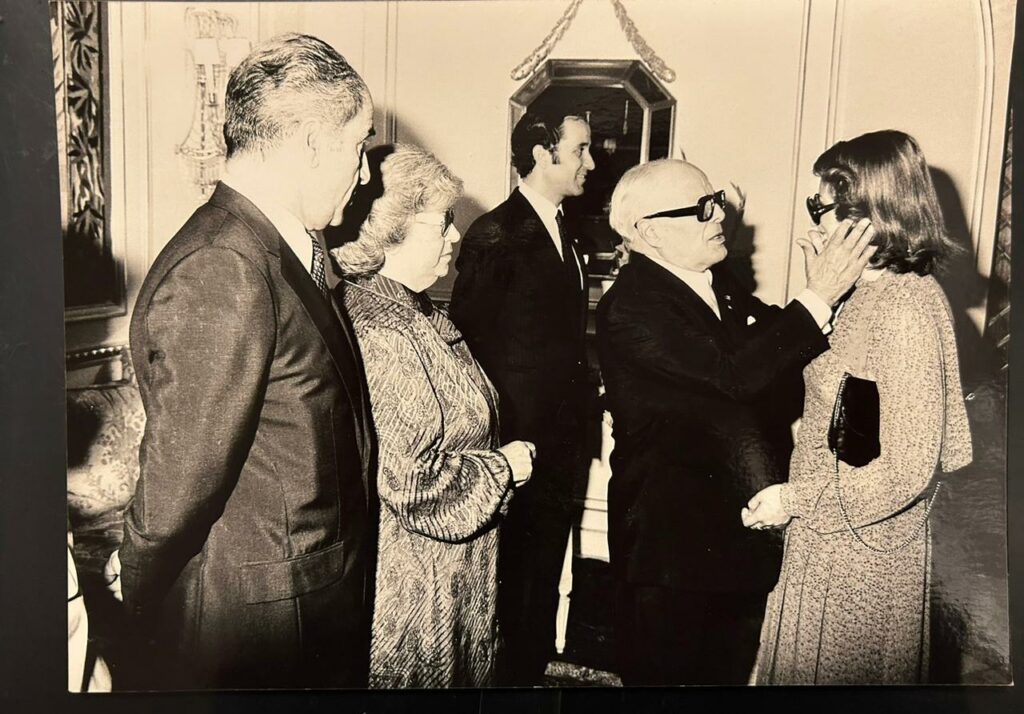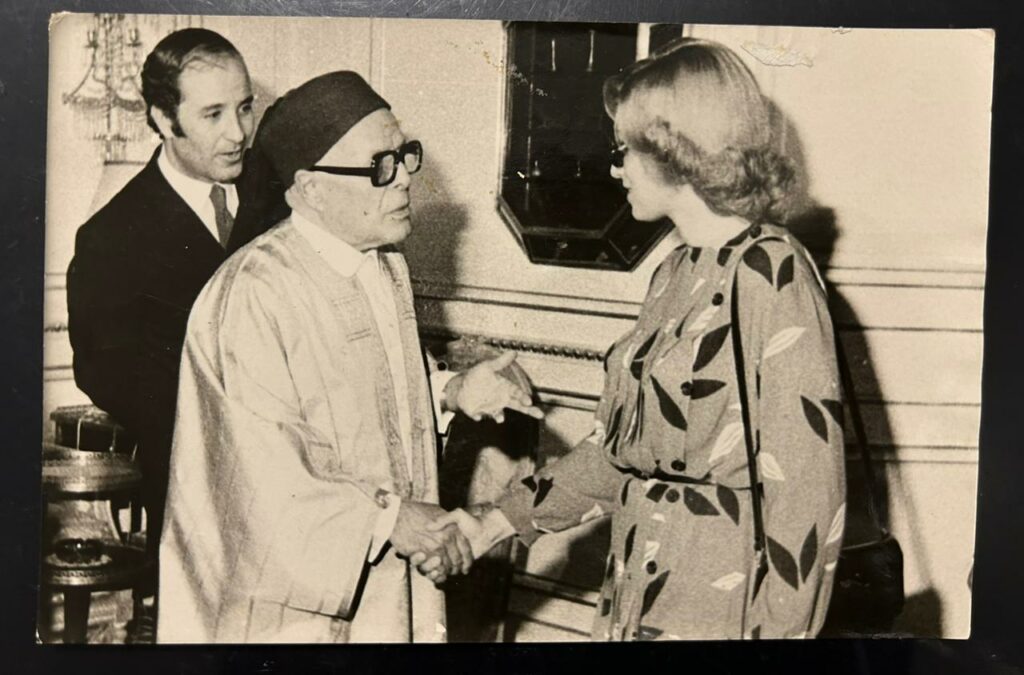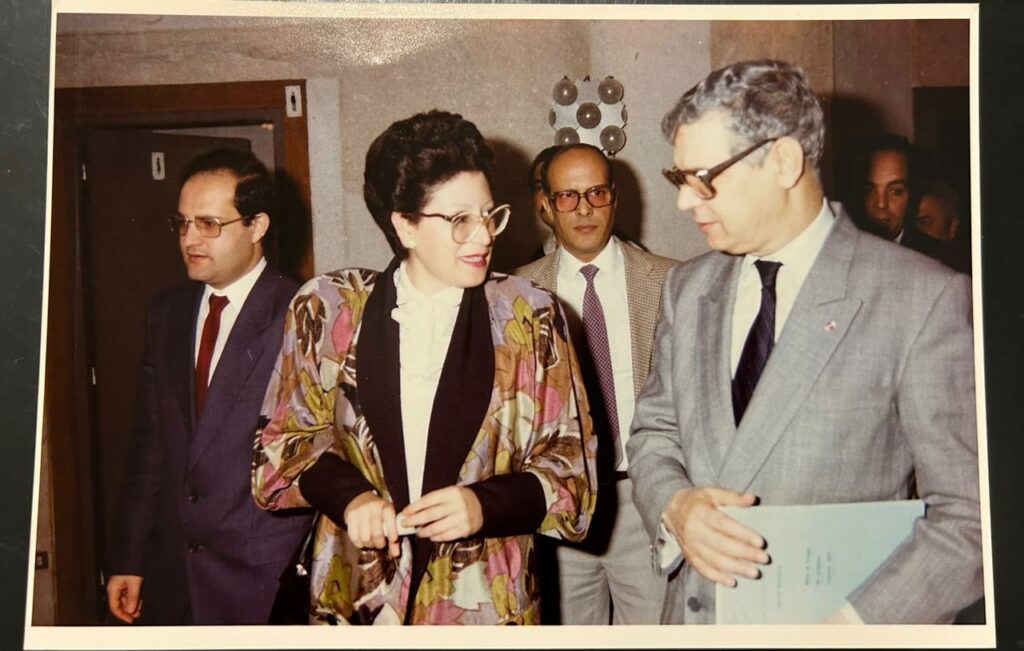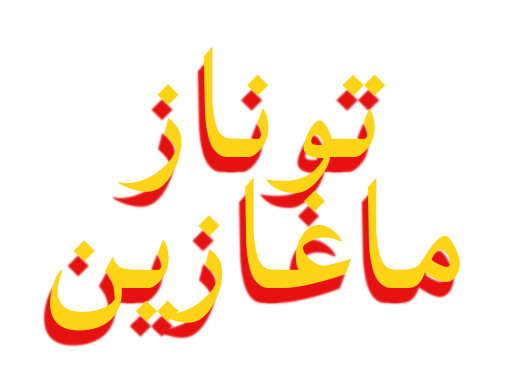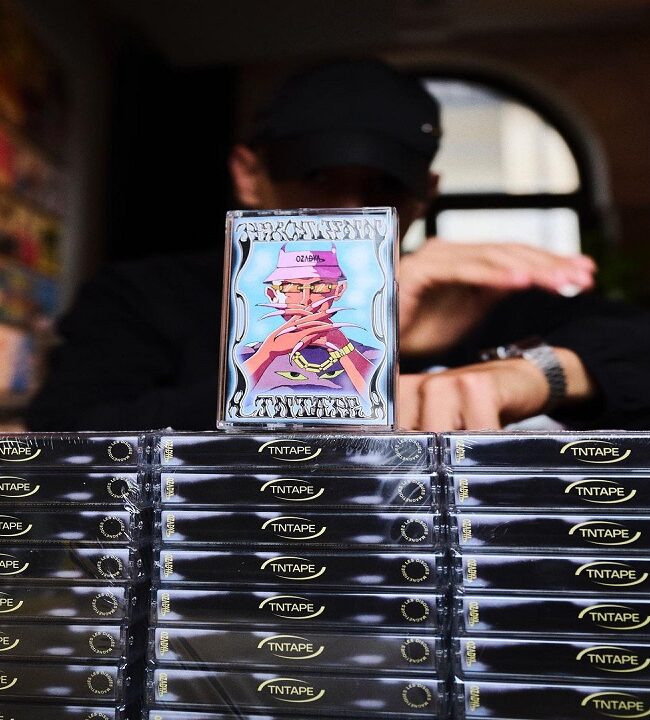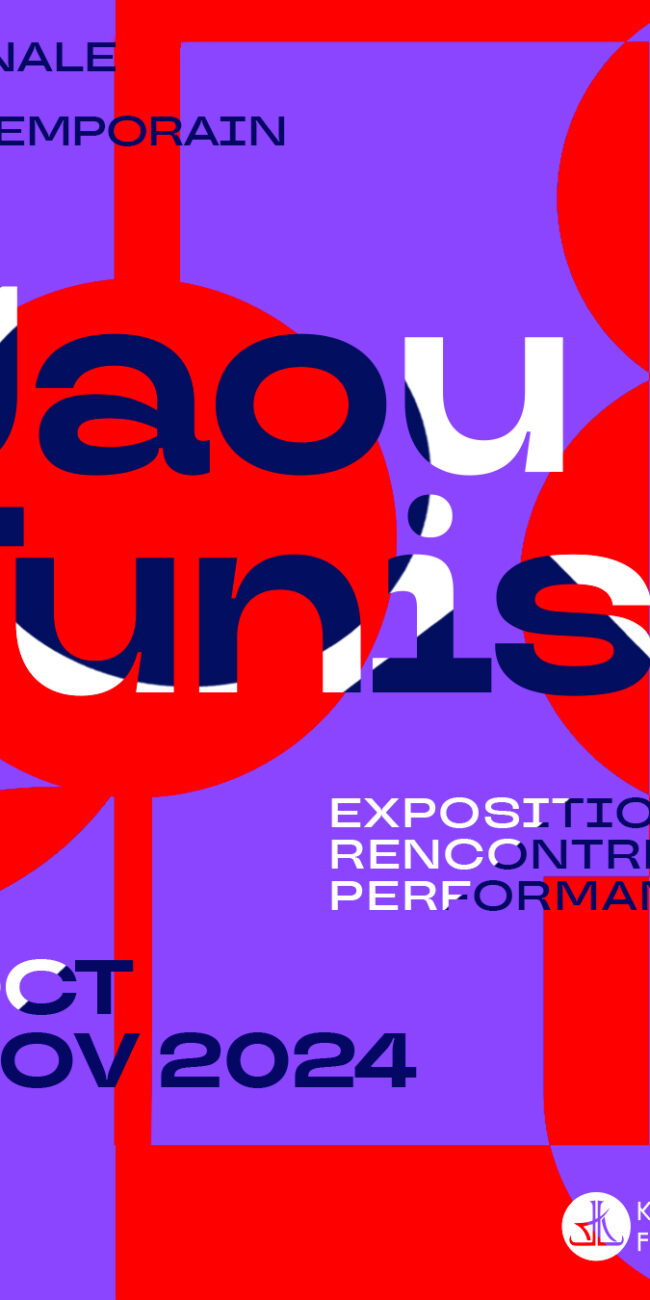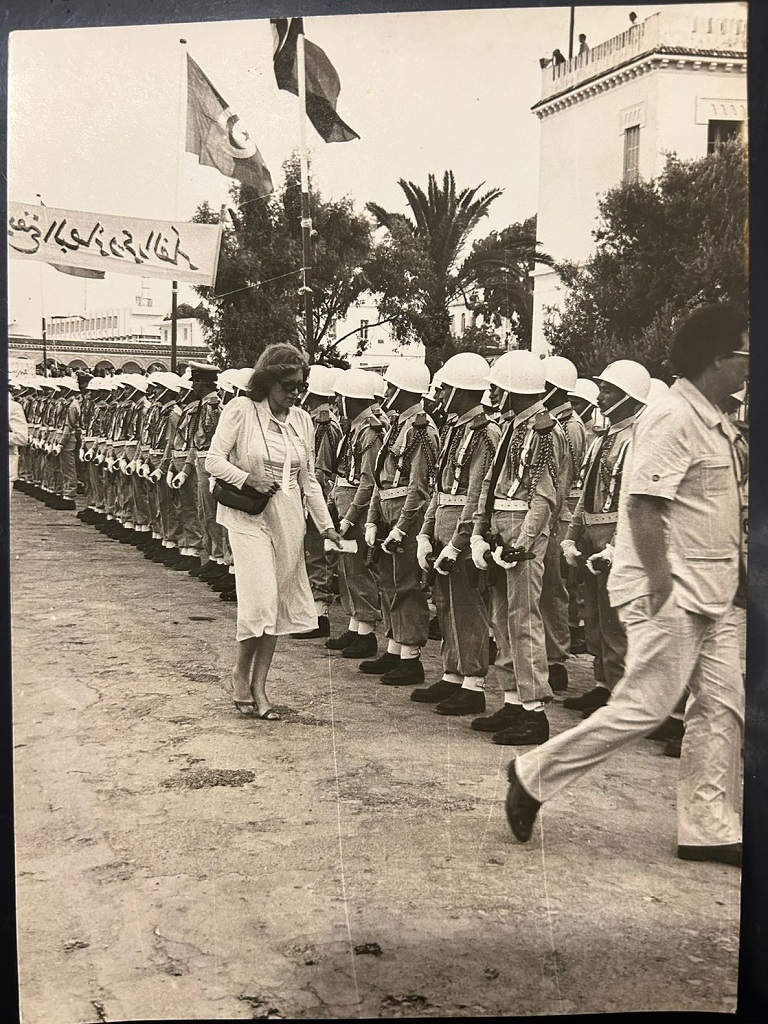
Raja El Almi
Raja El Almi, born on June 22, 1955, in Tunis, is a Tunisian journalist and writer. After obtaining her high school diploma in literature with high honors and commendations from the jury at the age of 17, she distinguished herself from her first years of study, achieving an exceptional score of 20/20 in the French early exams. These results earned her a scholarship from the Tunisian government to enroll at the Lycée Louis Le Grand in Paris. However, after a brief experience in Paris, she decided to return to Tunisia to continue her studies at the Faculty of Letters in Tunis.
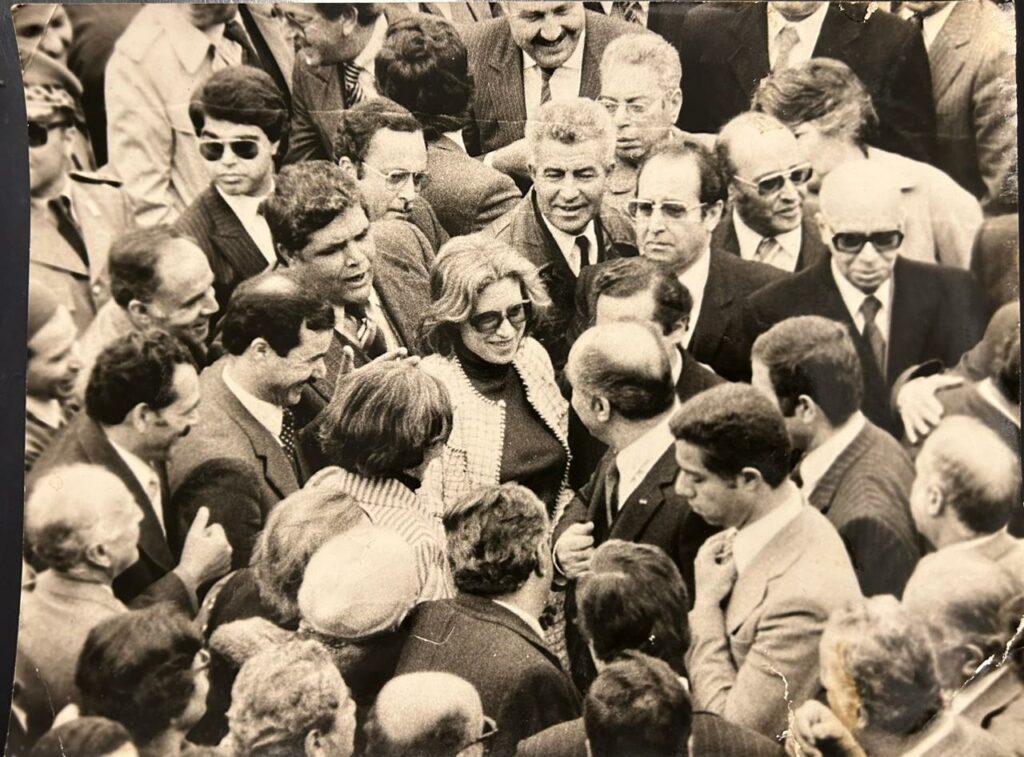
In early 1975, while still a third-year student in French Literature, she began her journalism career as a freelancer for the magazine Dialogue, working in the cultural department. At that time, she mingled with some of the biggest names in Tunisian journalism, such as Abdelhamid Gmati (Miduni), Fathi Houidi, Ridha Najar, Raouf Najar, and the cartoonist Ali Abid, under the direction of Omar S’habou.
From her first article, she established herself as a key figure in the field, notably with her coverage of Sabah Fakhri’s gala, titled “Meeting Between Soul and Song.” This article illustrated her mastery of musicology and Arabic literature, her artistic sensitivity, and her unique writing style, blending French and Arabic in an innovative approach.
She quickly became a respected and admired personality in Tunisian journalistic and cultural circles. Within the Dialogue magazine, she stood out for her in-depth and uncompromising analyses of performances by major Arab and international cultural figures, such as Sabah Fakhri, Mounir Bachir, James Brown, and the group Nas El Ghiwan. She also supported many Tunisian artists, including Taoufik Jebali, Fadhel Jaïbi, Anouar Brahem, and Lotfi Bouchnak.
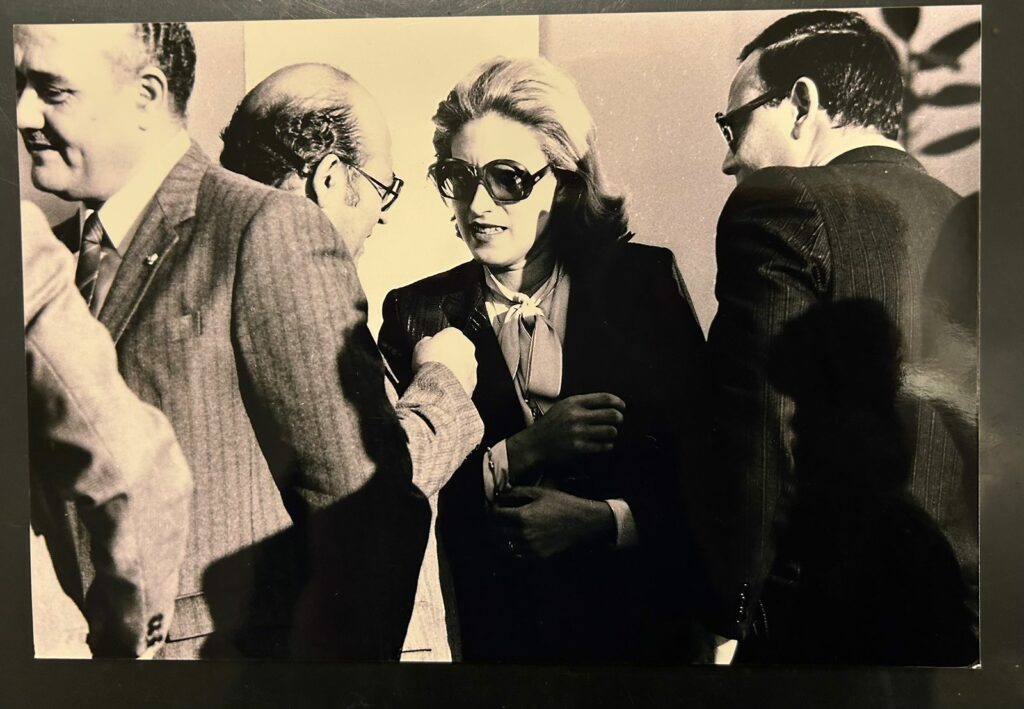
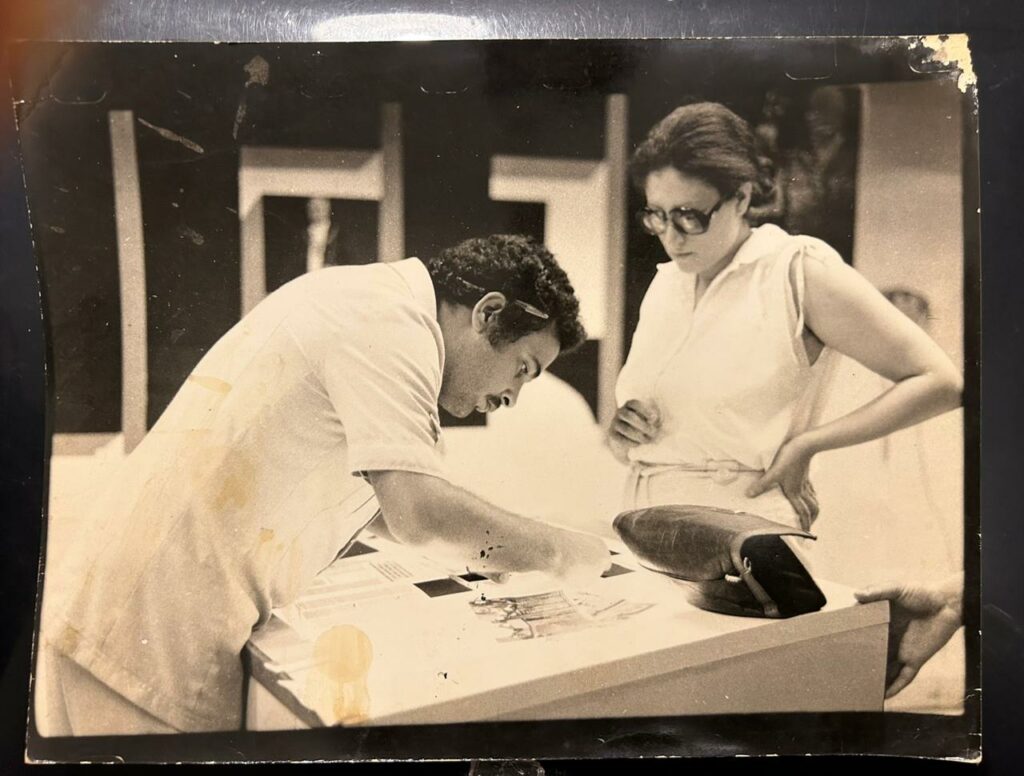
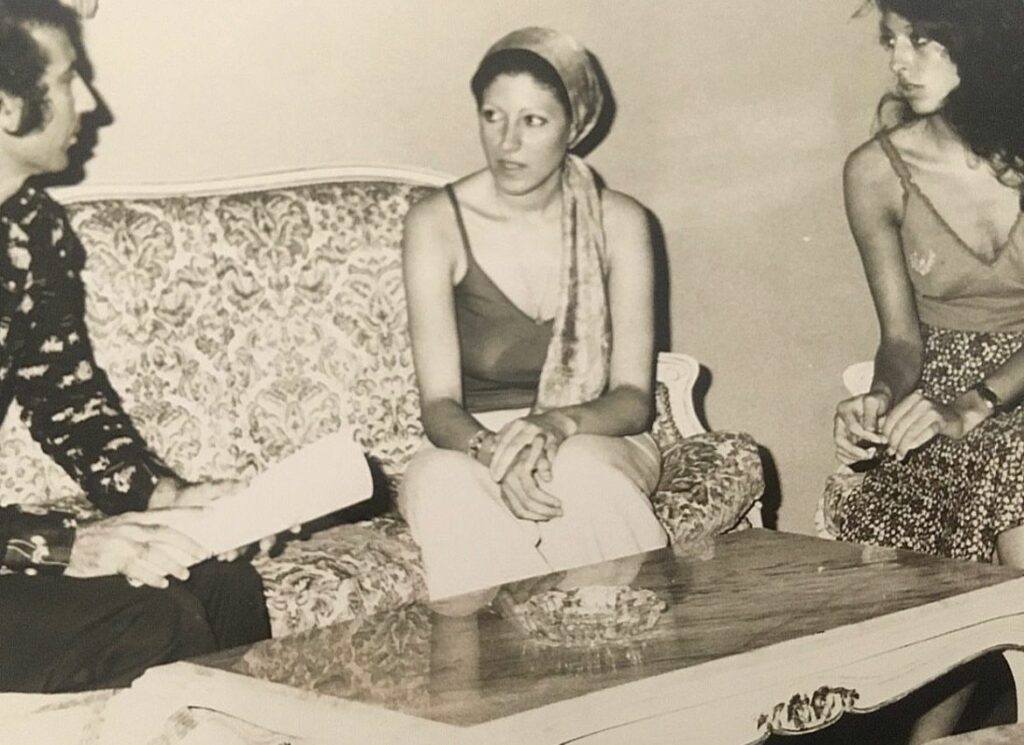
Raja El Almi participated in various seminars and cultural events, especially those related to the influence of Andalusian music on Maghreb culture, in collaboration with figures like musicologist Salah El Mahdi. In addition to her music critiques, she led the Music column and launched the television review page titled “Variations.”
In 1978, at the age of 23, she was appointed Director of International Relations at Tunisian Radio and Television. In this role, she negotiated an agreement with France Télévision, which led to the free broadcast of the France 2 channel in Tunisia. However, after a few weeks, she chose to return to her journalist role at Dialogue, believing that her skills and interests were more aligned with written press than administrative responsibilities.
In 1979, after Omar S’habou’s departure and under the direction of Hamadi Ben Hammed, Raja El Almi took responsibility for the “Society” section while continuing to contribute to the “Culture” section. Shortly after, she became the editor-in-chief of Dialogue magazine. On January 13, 1981, at the age of 25, she was appointed Director of Dialogue, a position she held until July 1986.
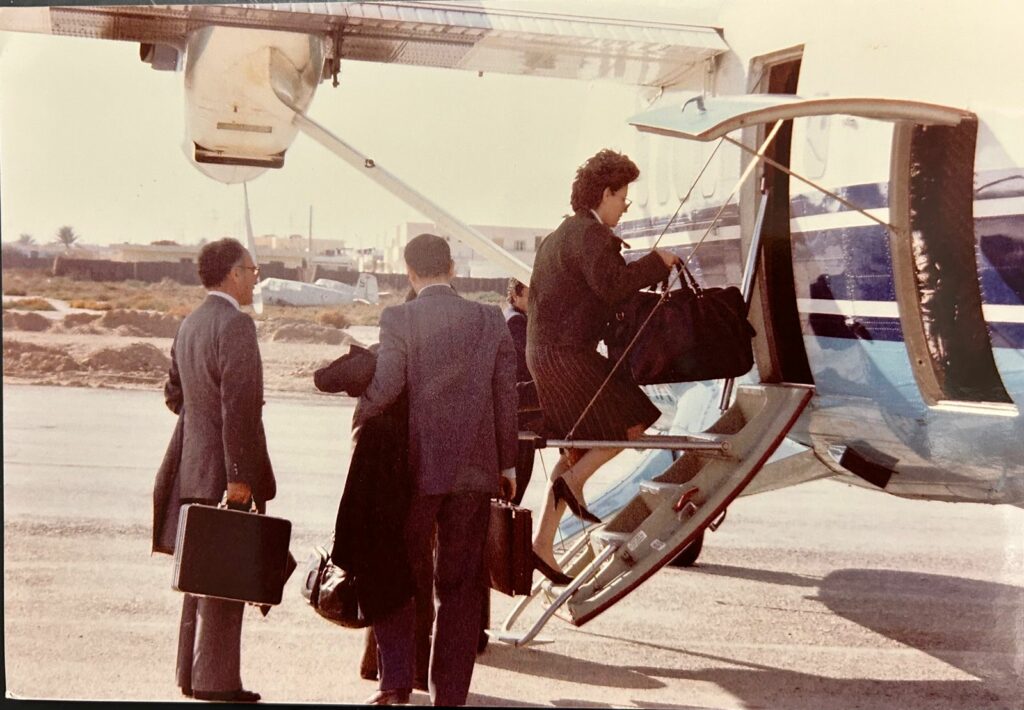
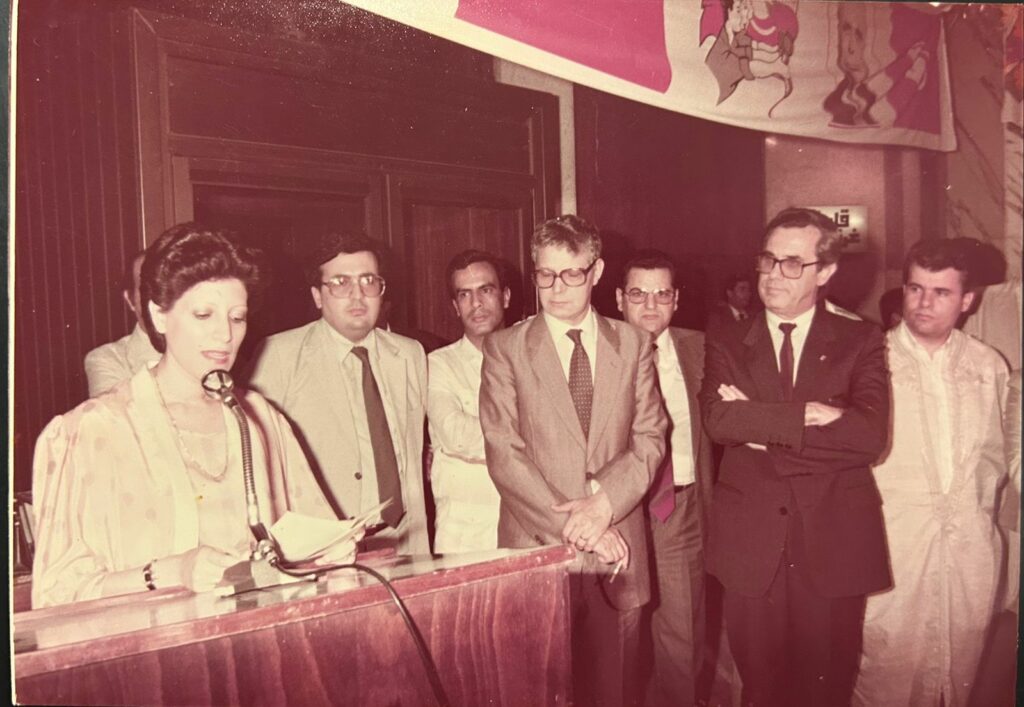
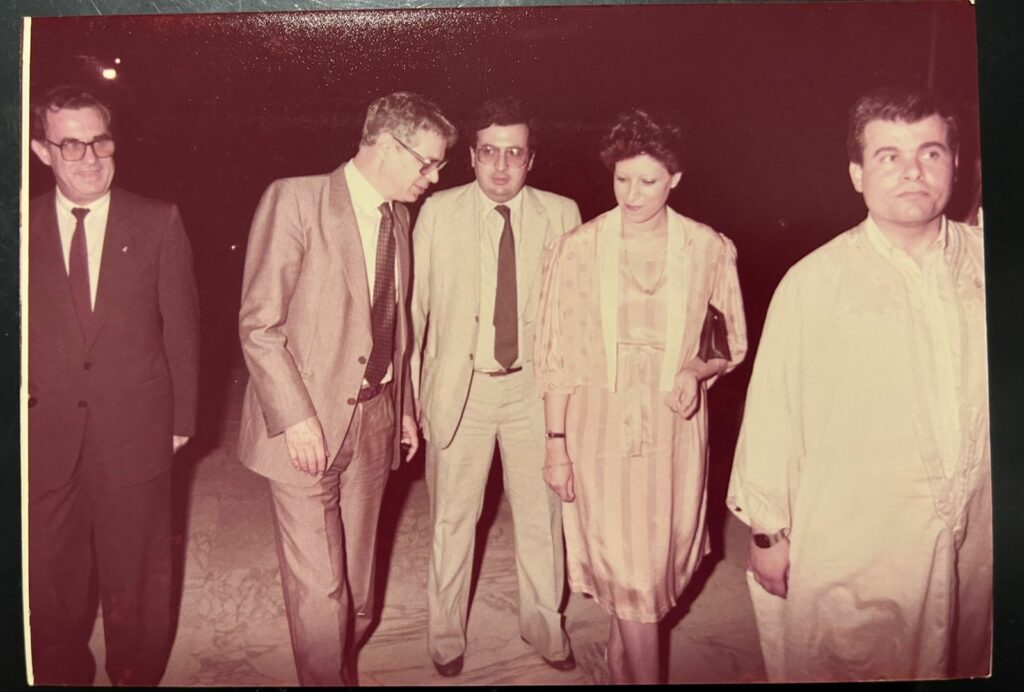
Her thoughts and commitments were deeply influenced by the personality and work of Habib Bourguiba, whom she particularly admired. She fervently defended societal causes dear to the Tunisian president, such as literacy, especially for girls, women’s rights, contraception rights, and human development. She traveled throughout Tunisia to promote these ideas, from Aïn Draham to Borj El Khadhra.
On the international stage, she was part of the official Tunisian delegation during the Prime Minister’s trips. In 1982, she welcomed Yasser Arafat in Bizerte during the exile of the Palestine Liberation Organization (PLO) in Tunisia. She also conducted a notable interview with President Léopold Sédar Senghor and reported on Afghan refugees in Pakistan, including an interview with the Pakistani Prime Minister. Her vigorous editorials, particularly during the Tunisian-Libyan crises, accompanied by Ali Abid’s cartoons, earned her a ban from entering Libya and several death threats.
From 1982 to 1987, she was vice-president of the municipality of La Goulette, then led by Béji Caïd Essebsi. On the associative front, she co-founded several ongoing events, such as the Fish Festival in La Goulette and the Tunis Computer and Office Exhibition, within the framework of the Junior Chamber International. Alongside polytechnic engineer Mokhtar Laatiri, she played a key role in introducing Tunisia to the era of microcomputing and the internet.
